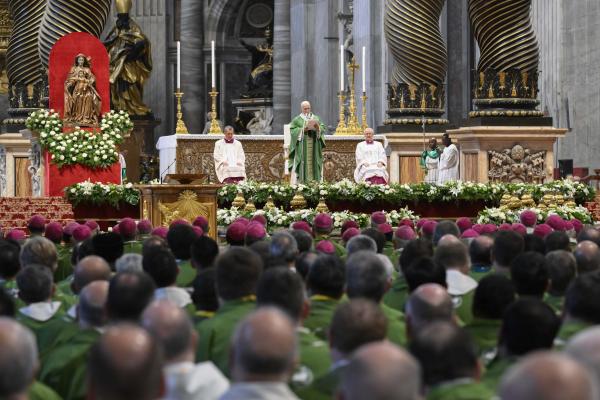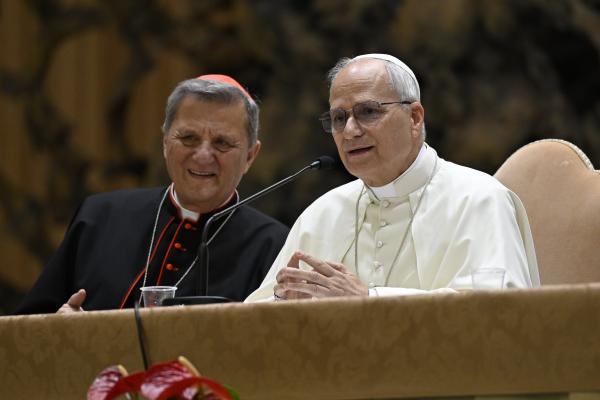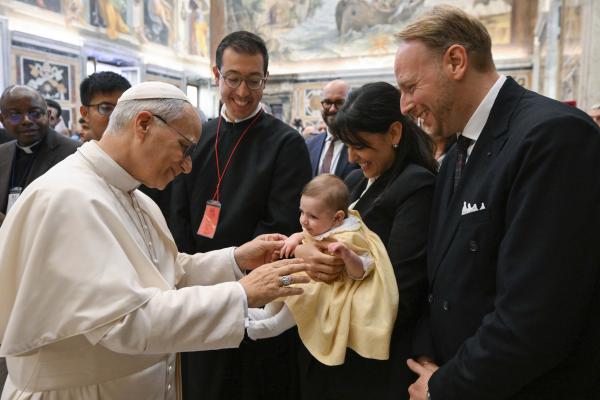Unity, not nationality led to Pope Leo's election, U.S. cardinals say
Cardinal Christophe Pierre, nuncio to the United States, and six of the U.S. cardinals who participated in the conclave that elected Pope Leo XIV spoke at a news conference in Rome the day after the election.
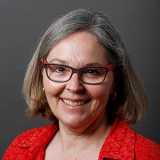 Cindy Wooden
Cindy Wooden
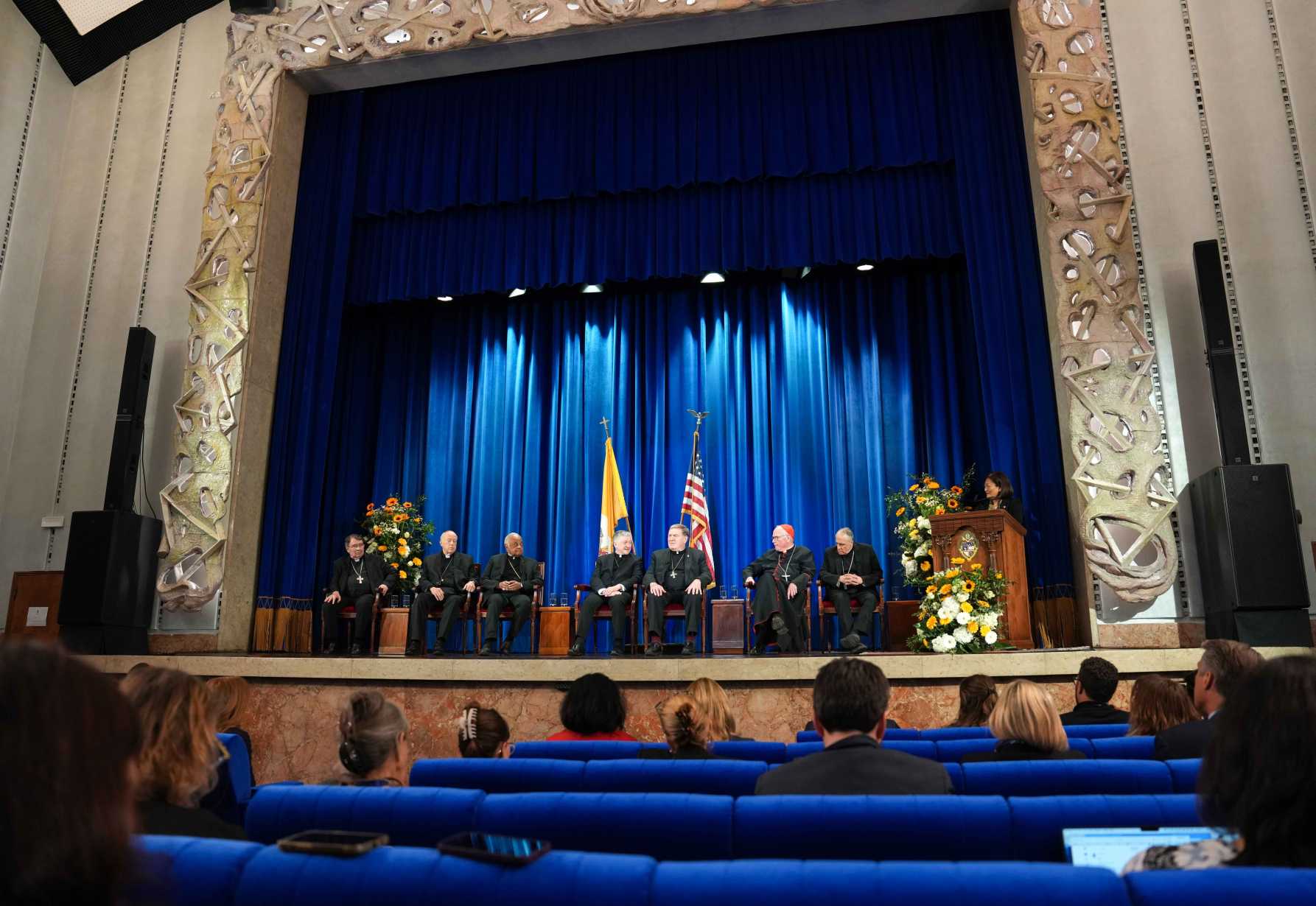
U.S. cardinals participate in a news conference at the Pontifical North American College in Rome May 9, 2025, to discuss the recent conclave and the election of Pope Leo XIV. The panel addressed questions from journalists following the historic announcement. (CNS photo/Lola Gomez)
ROME (CNS) -- While it is interesting and perhaps even a point of pride that the new Pope Leo XIV was born in the United States, most of the U.S.-based cardinals who participated in the conclave that elected him said nationality was not a factor.
"I think the impact of him being an American was almost negligible in the deliberations of the conclave and surprisingly so," Cardinal Robert W. McElroy of Washington told reporters May 9 during a news conference at the Pontifical North American College in Rome.
"What surprised me was the real absence of that being a key question at all," the cardinal said.
Cardinal Daniel N. DiNardo, retired archbishop of Galveston-Houston, told the reporters that while the cardinals chose a pope who is a U.S. citizen, "he's really a citizen of the entire world since he has spent so much of his life, ministry, missionary work and zeal for Christ in South America," mainly in Peru.
Cardinal Timothy M. Dolan of New York said, "The fact that he was born in the United States of America, boy, that's a sense of pride and gratitude for us," but the new pope is also a citizen of Peru. And he has work in the Roman Curia as prefect of the Dicastery for Bishops for the past two years.
"He's a citizen of the world," Cardinal Dolan said.
"Where he comes from is now sort of a thing of the past. You know, Robert Francis Prevost is no longer around. It's now Pope Leo," the cardinal said. "He's the pontiff of the church universal. Where he came from, (that's) secondary."
The cardinals were asked to what extent could people interpret the election of Pope Leo "as a reflection of the desire of the cardinals to offer a counterweight to the global influence of President Trump."
Cardinal Wilton D. Gregory, the retired archbishop of Washington, said, "The cardinals were quite aware of things that have occurred in the United States, statements that have been made, political actions that have been taken."
"But what the cardinals were concerned about primarily, at least from my conversations with them," Cardinal Gregory said, "was, 'Who among us can bring us together; who among us can strengthen the faith and bring the faith to places where it has grown weak, bring the faith to places where there seems to be less enthusiasm or appreciation of the common things that draw us together?'"
Cardinal Dolan responded, "It should not startle us that we would look to Pope Leo as a bridge builder. That's what the Latin word 'pontiff' means. He's a bridge builder. Will he want to build bridges with Donald Trump? I suppose, but he would want to build bridges with the leader of every nation. So, I don't think at all that my brother cardinals would have thought of it as a conduit to any one person."
The cardinals at the news conference all mentioned the cardinals going into the conclave looking for someone who could proclaim the Gospel and strengthen the unity of the church while also continuing the approach and projects of Pope Francis.
"We are looking for someone to follow the pathway of Francis, but we are not looking for a photocopy," Cardinal McElroy said.
Cardinal Blase J. Cupich of Chicago, Pope Leo's hometown, told reporters that the church does not speak of replacements for a bishop or pope, but of successors for them.
"That's a very important distinction to make, and that is what we were looking for as well," Cardinal Cupich said. The cardinals asked themselves, "Who could bring forward the not only the ministry and life and tradition of Francis, but everything that preceded him, especially from that pivotal moment of life in the church (that was) the Second Vatican Council."
Cardinal Christophe Pierre, the papal nuncio to the United States, quoted the French poet Charles Peguy: "Everything begins in mysticism and ends in politics."
The conclave was the opposite, he said. In the days of preparation for the conclave, the media particularly had taken a political view of the election of the new pope.
"What I experienced was that everything begins in politics and ends in mysticism. This is what we lived" in the conclave, Cardinal Pierre said. The conclave began "in this kind of confusion" of languages, cultures and not knowing each other.
The only solution, he said, was to dialogue and listen to one another, setting aside prejudices and entering into a process of prayerful discernment.
Cardinal Joseph W. Tobin of Newark, New Jersey, said he had known Pope Leo for 30 years; they were in Rome together in the late 1990s and early 2000s when Cardinal Tobin was superior general of the Redemptorists and Pope Leo was superior of the Augustinian friars. More recently, Cardinal Tobin served as a member of the Dicastery for Bishops, where then-Cardinal Robert F. Prevost was prefect.
Talking about the new pope's international experience, Cardinal Tobin first referred to him as "Bob" and then corrected himself, "Pope Leo."
Describing the new pope's leadership style, Cardinal Tobin said, "I don't think he's one that likes to pick fights, but he is not one to back down if the cause is just. And I guess the last thing I'd say about Bob is that he really is a listener, and then he acts."
Cardinal Tobin said that during the actual election in the Sistine Chapel, when he went up to cast his ballot as the outcome became clearer, he walked by then-Cardinal Prevost, "who had his head in his hands."
"I was praying for him, because I couldn't imagine what happens to a human being when you're facing something like that. And then when he accepted it, it was like he was made for it," the cardinal said. "All of the anguish or whatever was resolved by feeling -- I think -- that this wasn't simply his saying yes to a proposal, but that God had made something clear, and he agreed with that."
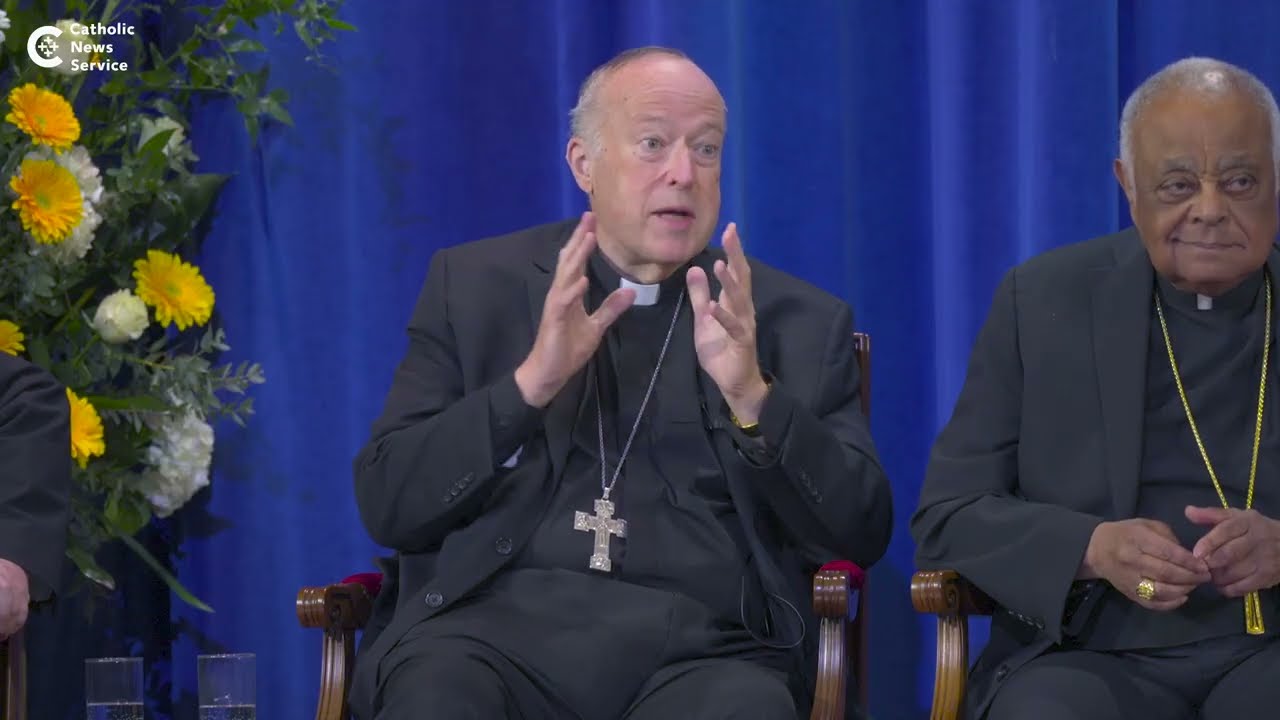
Question to U.S. cardinals: Did Trump influence conclave?
At a news conference at the Pontifical North American College May 9, U.S. cardinal electors were asked whether President Trump or the new pope's American citizenship had an impact on the conclave's outcome.

